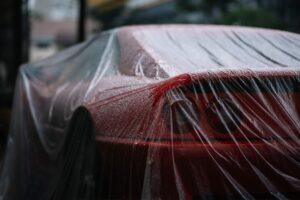In California, a “wet” reckless driving offense involves the consumption of alcohol by the driver. Pleading guilty to a wet reckless charge is a common plea bargain negotiated to avoid a potential DUI conviction.
 wet reckless driving alternative dui – long beach dui attorney
wet reckless driving alternative dui – long beach dui attorney
A wet reckless conviction results only from the plea bargain process; it is never the original charge with which a driver is cited by police. Reckless driving as defined by California Vehicle Code 23103 is a misdemeanor criminal offense, not an infraction like most motor vehicle moving violations. As such, criminal penalties including incarceration and/or probation can apply. But in general, these penalties are less severe than the consequences of a DUI conviction.
As defined by California Vehicle Code 23103, “dry” reckless driving is reckless driving without any alcohol involved, while a “wet” reckless offense involves the consumption of alcohol by the driver. Pleading guilty to a wet reckless charge is a common plea bargain negotiated to avoid a potential DUI conviction. A wet reckless conviction results only from the plea bargain process; it is never the original charge with which a driver is cited by police.
Elements of the crime of reckless driving
In order to obtain a successful conviction under 23103 PC, the prosecution must prove beyond a reasonable doubt that the defendant drove a motor vehicle with willful or wanton disregard for the safety of people and/or property. Under the law, willful or wanton disregard for safety means that the defendant:
- Was aware that their actions presented a “substantial and unjustifiable risk of harm” AND
- Intentionally ignored that risk.
Of particular importance is that the defendant need not have actually caused any harm or damage, just acted in a way that presented a substantial risk, and ignored that risk.
The wet reckless plea bargain
As mentioned, a charge of driving under the influence can sometimes be negotiated down to a guilty plea to a wet reckless offense. Among the factors supporting this type of plea bargain for an individual charged with a DUI include:
- A blood alcohol concentration (BAC) near or at the legal threshold of 0.08.
- A generally good driving history.
- Questionable procedures, evidence handling, and/or storage of the blood test.
- Potential problems with the initial traffic stop, probable cause, and/or any other weakness in the prosecution’s case.
Advantages and limitations of a wet reckless plea
The most significant difference and benefit of a wet reckless conviction vs. a DUI conviction is that that the defendant is not subject to an automatic driver’s license suspension — although in some cases, the defendant’s license may be suspended as the result of a DMV hearing.
Reckless driving does carry criminal penalties such as jail, fines, mandatory alcohol education programs, and probation. But these consequences are generally less severe than is the case for a DUI conviction.
On the other hand, auto insurance companies often view a wet reckless conviction as equivalent to a DUI for insurance purposes, typically resulting in increased premiums or even policy cancellation.
Also of significant importance is that a wet reckless is priorable, meaning that any DUI conviction in the future will treat the wet reckless as a prior DUI offense for purposes of sentencing.
Reckless driving vs. careless or negligent driving
A charge and conviction of reckless driving must include the element of willful or wanton disregard for safety. Under California law, this standard is much more than simple improper driving, careless driving, or driving without paying sufficient attention or adequate care.
Examples of actions which could constitute reckless driving include, but are not limited to:
- Extremely excessive speed, especially in residential areas or school zones.
- Street racing in the presence of onlookers and/or pedestrians.
- Fleeing the police.
- Passing on a hill with limited visibility or in other areas marked no passing.
- Overtly failing to yield the right of way.
- Running multiple stop lights and/or stop signs.
- Driving through a flood or railroad barricade.
- Acts of road rage.
- Performing stunts such as donuts, wheelies, stoppies, etc. on a public roadway.
- Purposefully blocking or interfering with the safe passage of traffic, particularly coordinated efforts to shut down a freeway or other roadway for a “sideshow” or similar activities.
- Aggressively weaving through slower moving traffic on a freeway or multi-lane street.
Reckless driving is a very subjective offense, and in some cases, motor vehicle operators are cited with a lesser charge or given a warning because the officer doesn’t think the driver’s conduct and demeanor clearly indicated willful or wanton disregard for safety. Individuals convicted of multiple prior moving violations are more likely to be prosecuted for reckless driving because they have already demonstrated a pattern of poor judgement and disregard for the potential consequences of their actions.
Criminal penalties for reckless driving
Reckless driving is a misdemeanor criminal offense, not an infraction like most motor vehicle moving violations. As such, potential criminal penalties include any or all of:
- Up to 90 days in county jail.
- A fine of up to $1,000.
- Probation for up to two years.
- Mandatory completion of an alcohol education program of up to six weeks.
These penalties are significantly less than those for a DUI conviction under 23152 VC, which may include up to six months in jail for a first offense and 1 year for a second or third conviction, much higher fines, longer probation periods, and lengthier alcohol education programs.











